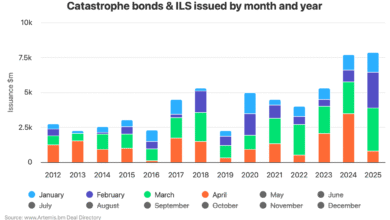Are insurers truly ready to scale gen AI? – Insurance-Canada.ca
New survey findings uncover gaps in preparedness, but a strategic focus on resources, responsibility, and returns could help insurers from POC to production —
By Sandee Suhrada & Stephen Casaceli, Deloitte —
It’s likely that no other technology offers as much transformative potential as generative artificial intelligence. This technology has the potential to change the way insurers operate, assess risks, launch products, and interact with customers, among other things. However, the journey toward scaling gen AI has challenges on multiple fronts. In the last year or so, many insurers have dipped their toes in gen AI proofs of concept, but despite the hype, and some initial successes, many may not yet be fully prepared to harness the full potential of gen AI. So, the question looms: How ready are insurers to scale gen AI?
In June 2024, Deloitte conducted a survey of 200 US insurance executives, of which 100 come from the life and annuity (L&A) sector and the remaining 100 from the property and casualty (P&C) sector, to assess their readiness to adopt gen AI. Survey findings reveal how insurers surveyed are preparing to move past the initial proof of concept (PoC) and experimentation stage and how they are overcoming implementation obstacles that exist to be ready to embrace and scale gen AI.
Early experiments unveil cracks in the foundation
Survey findings indicate that many insurers have taken the first steps with gen AI implementations. Seventy-six percent of the respondents say they have already implemented gen AI in one or more business functions. L&A insurers appear to be slightly ahead, with 82% of L&A respondents saying they implemented gen AI in one or more business functions, compared with 70% of P&C respondents. There also seems to be a positive correlation between implementation and the size of the organization, with higher rates seen in larger-sized organizations.
When it comes to where various insurers are in their implementation journey, initiatives are spread across various stages and functions among respondents. While some insurers have already deployed gen AI across various functions, the largest cluster is still in the scoping stage. It seems that, after initial experiments with use cases and PoCs, insurers may be taking a more measured approach to scaling and adoption.
One reason for this approach may be related to some insurance leaders still weighing the potential risks against the potential benefits, especially insurers with annual revenues of under US$500 million. While 45% of respondents said that their leaders believe the benefits of gen AI outweigh the risks, the majority either think that the risks outweigh the benefits, or are on the fence about gen AI’s value proposition.
This stance by insurers may be in part due to the complexity of their legacy technology infrastructure, which has presented challenges to modernization across a range of use cases.
Insurers appear to be becoming increasingly aware that the journey to scaling gen AI will include challenges. However, they can use the experience they gained from the POCs and early experiments to help position their organizations for long-term success.
For example, among respondents, the lack of business line support was deemed the most important factor that made implementation unsuccessful. Poor data and AI foundations, legacy IT infrastructure challenges, and inadequate collaboration between business and tech functions were also cited as reasons for unsuccessful implementations. Interestingly, underfunding was not cited as a major factor causing gen AI implementation failures.
Conversely, successful implementations paint a mirrored picture, as close collaboration across business, tech, data, and talent functions was cited as the biggest reason for success among those surveyed. When these functions work in harmony, they can create a favorable environment for AI initiatives to succeed. Respondents also highlighted having a strong data foundation in place as a key factor for success.
Insurers’ experiences with gen AI underscore the importance of organizational alignment and data readiness. By learning from both successes and failures, insurers can better navigate the complexities of scaling AI and take steps to become better prepared.
But questions remain: How can insurers assess their readiness? Where should they focus their efforts to achieve a state of scaling readiness, and how can they do it effectively? The 3R framework—resources, responsibility, and returns—can serve as a guide for insurers to consider in this journey (figure 4).
About Deloitte
Deloitte provides industry-leading audit, consulting, tax and advisory services to many of the world’s most admired brands, including nearly 90% of the Fortune 500® and more than 8,500 U.S.-based private companies. At Deloitte, we strive to live our purpose of making an impact that matters by creating trust and confidence in a more equitable society. We leverage our unique blend of business acumen, command of technology, and strategic technology alliances to advise our customers across industries as they build their future. Deloitte is proud to be part of the largest global professional services network serving our customers in the markets that are most important to them. Bringing more than 175 years of service, our network of member firms spans more than 150 countries and territories. Learn more at www.deloitte.com.
SOURCE: Deloitte

